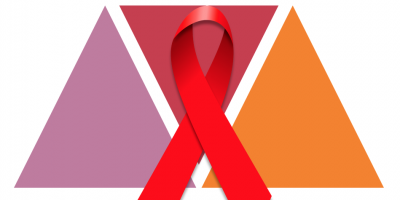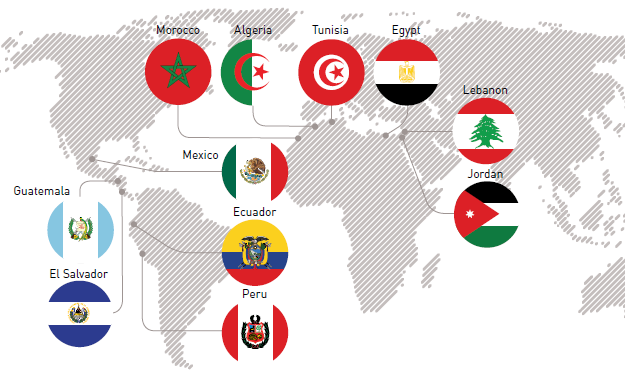
On World AIDS Day, IDLO launched a new report: Equal Rights, Equal Treatment, Ending AIDS: Strengthening and expanding HIV-related legal services and rights.
The report looks at the contribution of IDLO’s health law program over the period 2009 – 2017 and its approaches to strengthening rights-based approaches to national HIV responses. It is relevant to government health and justice sector advisors, policy makers, representatives of civil society organizations (CSOs), international organizations and donors who work to create positive legal environments.
Legal frameworks for HIV
While legal frameworks and experiences of people living with HIV vary across contexts, it is internationally accepted that the law has a vital role in advancing the human right to health. According to the Joint United Nations Programme on HIV and AIDS (UNAIDS), legal services are a key part of the enabling legal environment in national HIV responses. And, Sustainable Development Goal 3 of the 2030 Agenda seeks to end AIDS as a global public health threat.
“We need more lawyers with the relevant skills and knowledge to help people claim their rights," notes David Patterson, IDLO’s Manager/Advisor for health law. “In many countries, lawyers still don’t understand HIV or know the applicable local laws or, worse, they are judgmental or even afraid to represent people living with HIV or key affected populations. The legal profession has to step up with courage and dignity. Lawyers are part of the solution.”
However, discrimination remains widespread and creates real barriers for many people to ask for legal- or health-related assistance and services, obstructing their access to justice.
“Social vulnerability leads invariably to HIV vulnerability – this can be because of youth, gender, stigma, poverty, sexual orientation, disability, drug use or other factor. Access to justice for these people also means improved access to health services – an essential part of Universal Health Coverage. IDLO's health law projects worked with a diverse and committed group of lawyers and activists to strengthen and expand HIV-related legal services and rights,” he added.
The legal profession has to step up with courage and dignity. Lawyers are part of the solution.
IDLO's Health Law Program
To jointly address HIV-related stigma, IDLO has been working with grassroots organizations in eleven countries throughout Latin America and the Middle East and North Africa, bringing together legal service organizations, associations of people living with HIV and other key affected populations and government AIDS programs.
|
A map of IDLO's HIV programs, across Latin America and the Middle East and North Africa regions, covered in the report |
“When we call for ending stigma and discrimination we have to accept the other person, regardless … of whether this person is religious, not religious; regardless of their lifestyle; regardless of what their beliefs are, says Mohammed Al Nasser, a lawyer and founder of the HIV and Law Initiative in Jordan. “The most important thing is to accept each other, and not to stigmatize and discriminate.”
IDLO’s health law program employs multifaceted approaches designed to empower communities through enhanced legal literacy and knowledge of rights. The report reviews innovative ways IDLO’s partners delivered legal services, including through telephone hotlines and social media campaigns to address stigma and inform people about their rights.
“Not all cases need to go to court to be effective. The presence of … legal services, as well as the ability to mediate cases outside of the court system, is an important redress mechanism,” says Laura Hernandez, a lawyer and coordinator of Online Legal Service in Mexico. “The presence of such services, and the rising publicity around cases, are ultimately a deterrent to HIV-related discrimination and human rights violations.”
In addition to enabling legal assistance, IDLO also supported civil society organizations to undertake strategic litigation which led to groundbreaking legal decisions advancing HIV-related rights in Egypt, El Salvador, Guatemala and Tunisia.
Notably, the report describes the networks created between the organizations in each region to facilitate sharing information and resources, foster dialogue and accelerate the national and global responses to HIV.
These initiatives are supported by the Ford Foundation and the OPEC Fund for International Development (OFID).


